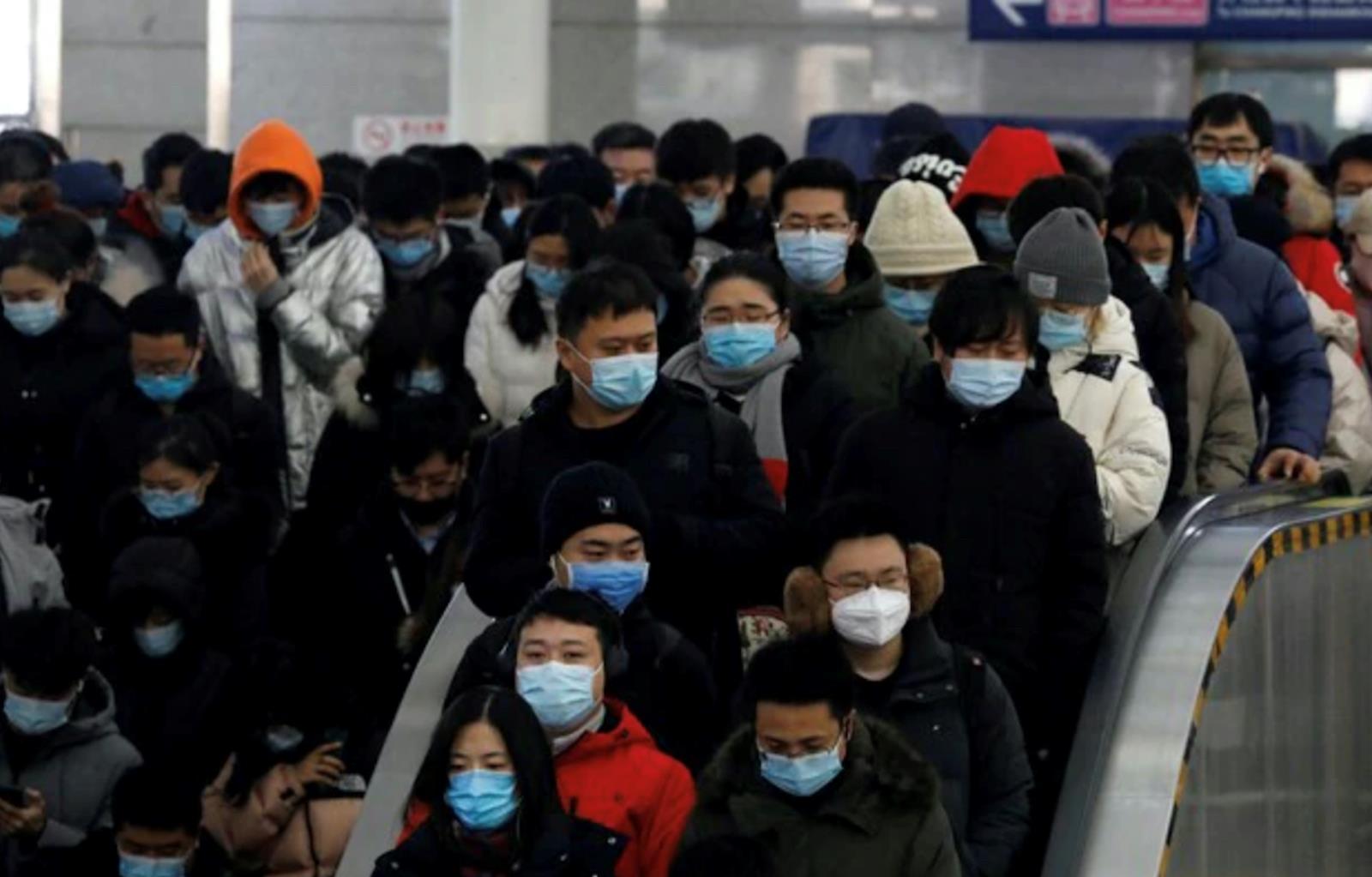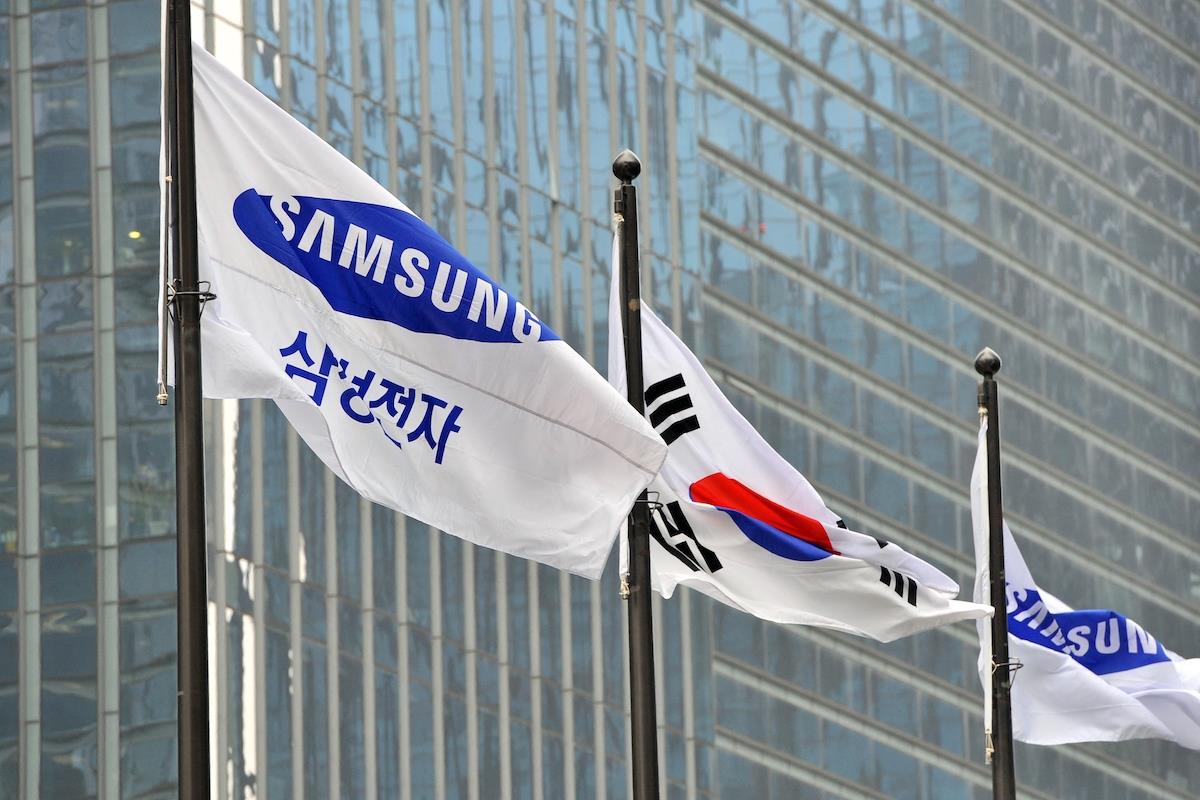(MENAFN- Asia Times) TOKYO – With China set to boom and the US economy holding up better than feared, 2023 is an ideal moment for Japan and South Korea to get their respective reform programs back on track.
What are the odds this might actually happen? Low and falling, sadly.
This period of synchronized china-us growth - or at least economic stability- is a rare occurrence Asian neighbors would be well-advised to harness. Yet neither Japanese Prime Minister Fumio Kishida nor South Korean President Yoon Suk-yeol seems ready to put this tailwind to good use.
This failure is particularly acute when it comes to the semiconductor industry, one that both Kishida and Yoon appear to be ceding to Xi Jinping's China.
To be sure, the US piece of this story could go awry in short order. The lagged effects of the Federal Reserve's aggressive 2022 tightening moves have investment banks assigning reasonable odds of recession. The same with the specter of more rate hikes with inflation around 40-year highs.
President Joe Biden's White House also has been slower to invest in increasing innovation and productivity than hoped. Such policies, many economists agree, would reap greater benefits than higher rates in taming inflation.
Yet the US continues to avoid the worst-case scenarios month after month thanks to a strong job market. In 2022, the world's biggest economy grew 2.1% year on year.
Count David Kelly, chief global strategist at JPMorgan Asset Management, among those who think US inflation/unemployment dynamics are moving in the right direction.“Chances are, risk assets are going to do very well,” Kelly notes.
Risks abound, though, not least of which is China's reopening fueling a fresh inflationary wave that forces the US Fed to intensify its rate hike cycle. Or events in Ukraine heating up anew and propelling energy and food prices to new heights.
Even so, this is a moment when Kishida in Tokyo and yoon in seoul should be unleashing the reformist energy both leaders promised their voters. The International Monetary Fund (IMF) just raised its outlook for the global economy for the first time in a year, citing steady US demand and China's reopening.

Unleashed pent-up Chinese demand could drive the global economy in 2023. Image: Screengrab / NDTV
The IMF now sees global gross domestic product (GDP) expanding about 2.9% in 2023, 0.2 percentage points faster than earlier projections.
“The outlook is not worsened this time around, which in itself is good news,” says IMF chief economist Pierre-Olivier Gourinchas.“But it's not enough. There are still some challenges to get on our way to a sustainable recovery that is broad and long-lasting.”
The longer-lasting problem would be for Japan and Korea to fail to raise their innovative and economic games.
Korea, for example, in November saw the biggest drop in semiconductor production since the 2008-2009 global financial crisis. That 15% drop in Korean chip production was the fourth consecutive monthly decline. The sector's travails are weighing on Korea's industrial production.
In November, Korean industrial production shrank 3.7% year on year, the largest drop since the pandemic began. Chip production, specifically, fell 11% in November from October. Meantime, semiconductor inventories surged 20% in November from a year ago.
These figures partly reflect a global glut of memory chips in which Korea leads production. This, of course, also reflects how Korea is collateral damage amid the Biden White House's efforts to limit Chinese access to vital technology.
Japan is facing a similar headwind . This week, Kishida's government reportedly joined hands with Biden and the Netherlands to restrict exports of some advanced chipmaking technology to Xi's economy.
Aimed at complicating China's efforts to increase market share in the chips space, the pact would expand curbs on companies including ASML Holding, Nikon Corp and Tokyo Electron Ltd.
Speaking in The Hague, Dutch Prime Minister Mark Rutte said“talks are ongoing, for a long time already, but we don't communicate about this. And if something would come out of this, it is questionable if this will be made very visible.”
The agreement is a win for Biden as the US endeavors to curb China's tech and military ambitions. Yet it could have unintended consequences as China is newly incentivized to invest even bigger in domestic chip development, as ASML's chief executive officer Peter Wennink puts it.“That will take time,” Wennink notes,“but ultimately they will get there.”
The real downside in the shorter run, though, could be for Japanese and Korean economies already facing a barrage of domestic troubles.
In a December poll of Japanese business leaders by Nikkei Asia, more than 80% of respondents supported Tokyo's efforts to increase domestic semiconductor production .

The domestic semiconductor industry is crucial to Japan's economic future. Image: Facebook
In May 2022, Kishida's government passed the Economic Security Promotion Act to strengthen related supply chains in 11 different sectors. Semiconductors were a major focus given Japan's outsized reliance on Taiwan, which operates under the shadow of geopolitical tensions with China.
Initiatives include Tokyo offering more than $3.5 billion in subsidies for a state-of-the-art Taiwan Semiconductor Manufacturing Co factory in Kumamoto planned to open next year.
As Yuji Fukasawa, president of East Japan Railway, told Nikkei, it's“important not only for economic security and promotion of the digital transformation of business, but also from the perspective of fostering domestic growth industries and raising the level of the economy as a whole.”
Yet Japan should tread carefully, notes Brad Glosserman, author of the 2019 book Peak Japan: The End of Great Ambitions and a professor at Tama University. He notes that“while timely and logical, this approach could be used to justify the country's time-tested techno-nationalism.”
As Glosserman sees it,“progress demands that Japan takes additional steps, including developing a security clearance system” to make change-averse Tokyo more open to sharing technology.
Tokyo's“failure to set up a mechanism to protect secrets from unauthorized disclosure is a perennial US complaint,” he says.“A security clearance provision was anticipated in the economic security bill, but it was deemed too sensitive.” Here, he adds, the“perception that Kishida is a less radical figure than former prime minister Shinzo Abe may blunt some fears.”
Another agenda item, Glosserman says,“is the creation of an organization to identify and evaluate emerging technologies and direct the government and private sector on how to nurture and protect their development.”
Hideki Wakabayashi at the Tokyo University of Science observes that the“governments of the United States, South Korea, Taiwan, and China have all invested heavily in their semiconductor industries as a matter of national policy, also offering tax relief to businesses in the sector. In Japan, however, the trauma of the trade friction debacle has caused the government to be more subdued in its support for the industry.”
Since May, that effort has intensified to some extent. Yet, Wakabayashi notes,“while the Kishida government started out by declaring that it would implement a 'new kind of capitalism,' the government faces many geopolitical risks, including the sudden depreciation of the yen, inflation, North Korean missile launches, and the potential for military conflict in Taiwan. Japan is also a country that suffers from 'first-world problems' in the form of budget deficits, the need to become carbon neutral, declining birth rates, and an aging population.”
So, he points out, Kishida's ruling Liberal Democratic Party never seems to find the time or political courage to shake up the status quo. That goes, too, not just for Yoon's government in Seoul but the previous four over the last 20 years who pledged to increase Korean innovation and productivity.
Each Korean government since 2003 promised to create more economic space for small and medium-sized enterprises to thrive and disrupt the economy. It was the borrowing excesses and monopolistic behavior of the giant family-owned conglomerates, or chaebols, that left Korea so top-heavy and vulnerable amid the 1997-98 Asian financial crisis.

There is little appetite in Seoul for reforming the country's chaebol, or family-run conglomerates like Samsung. Photo: AFP / Jung Yeon-je
Since then, Korea has increased its stable of startups and tech“unicorns.” But the lack of antitrust enforcement means corporate power is still concentrated among the chaebols.
While it's still early days for Yoon – his term began in May – his government has thus far displayed little determination to recalibrate growth engines.
As China generates powerful tailwinds and the US at least seems poised not to undermine that trajectory, Japan and Korea should be setting their sails for economic reform. Sadly, there's little indication that's about to be unfurled.
Follow William Pesek on Twitter at @williampesek